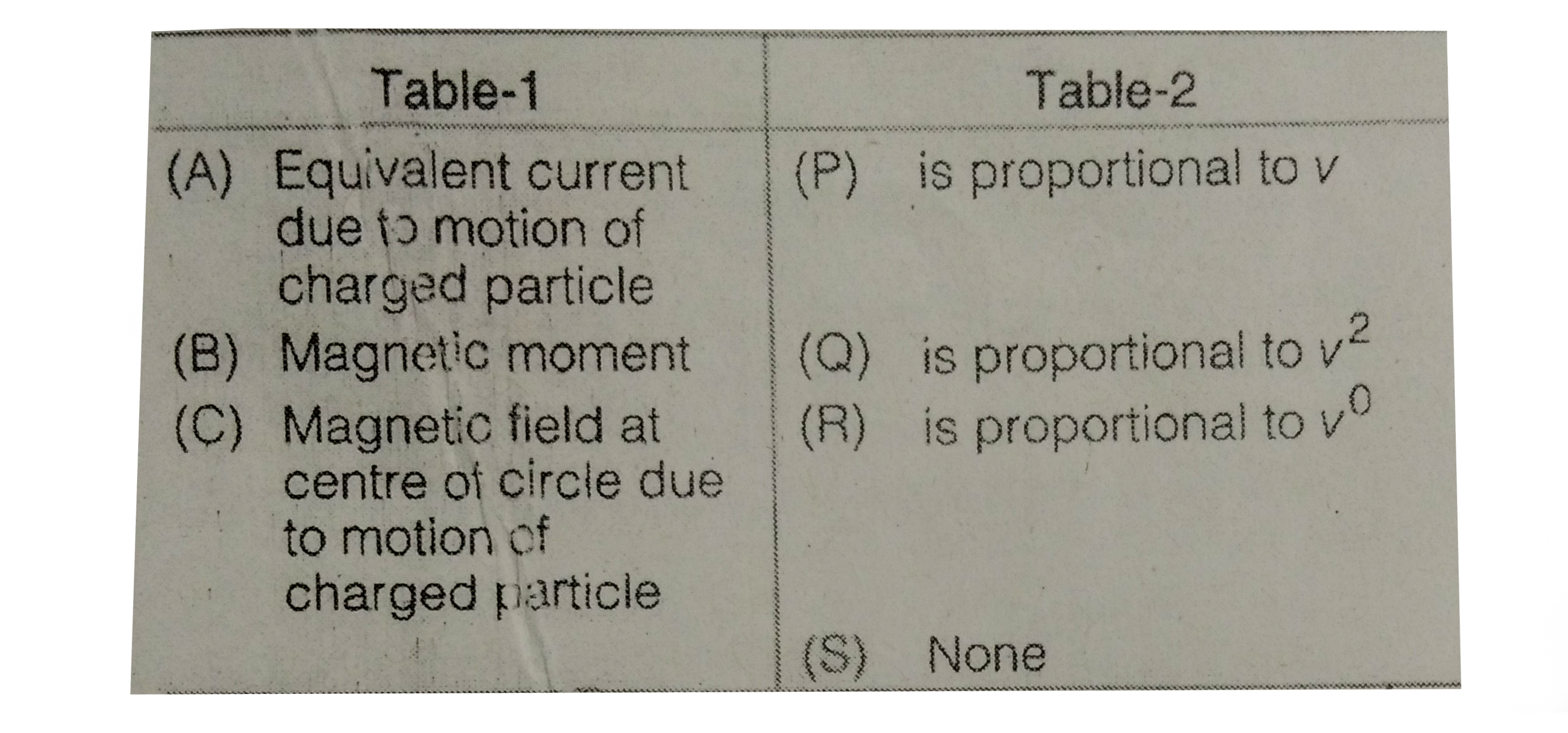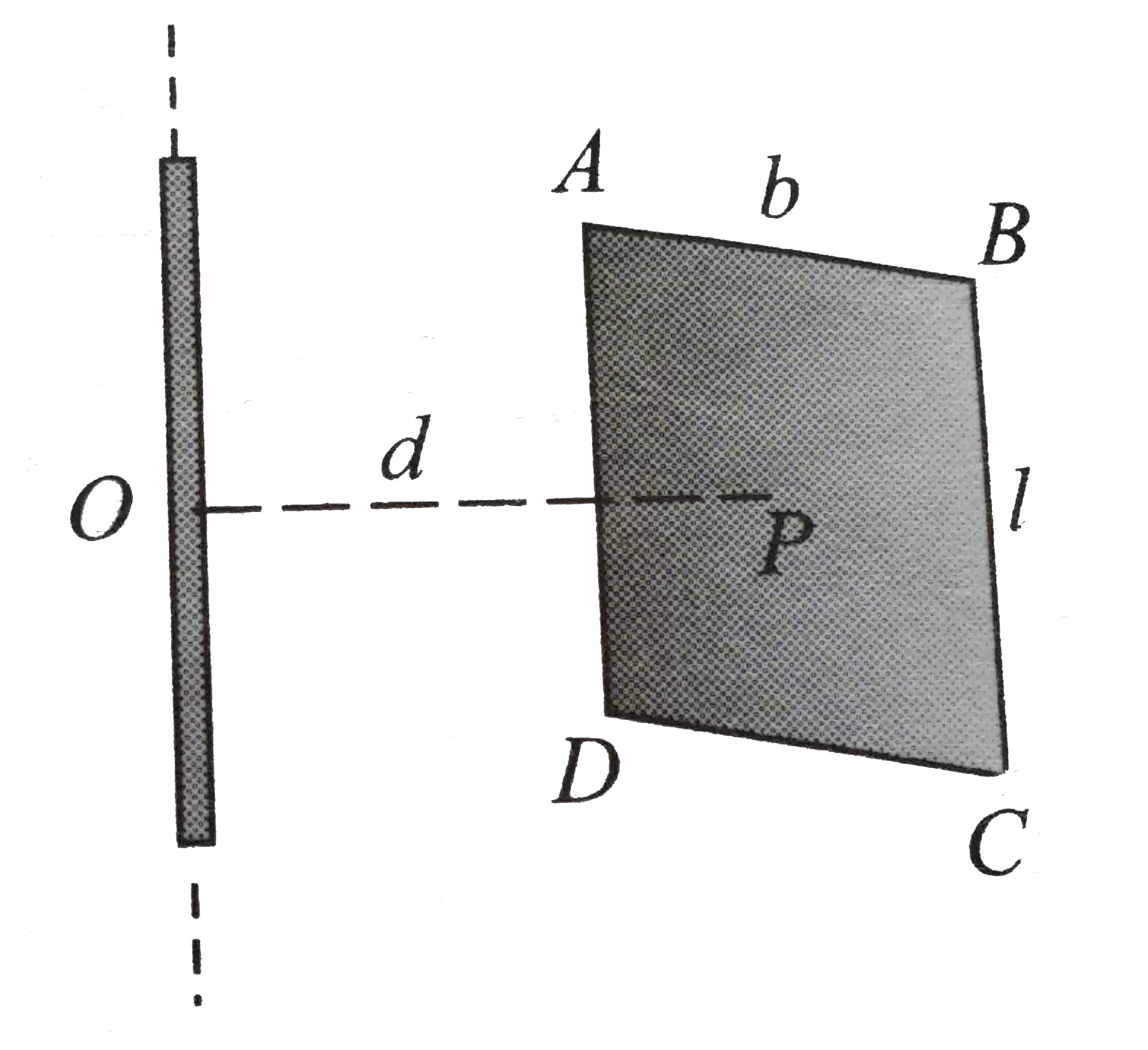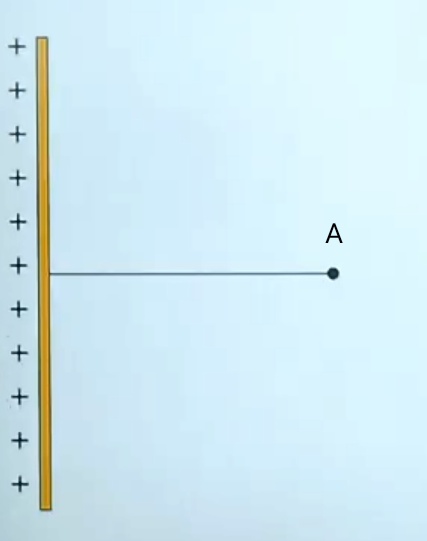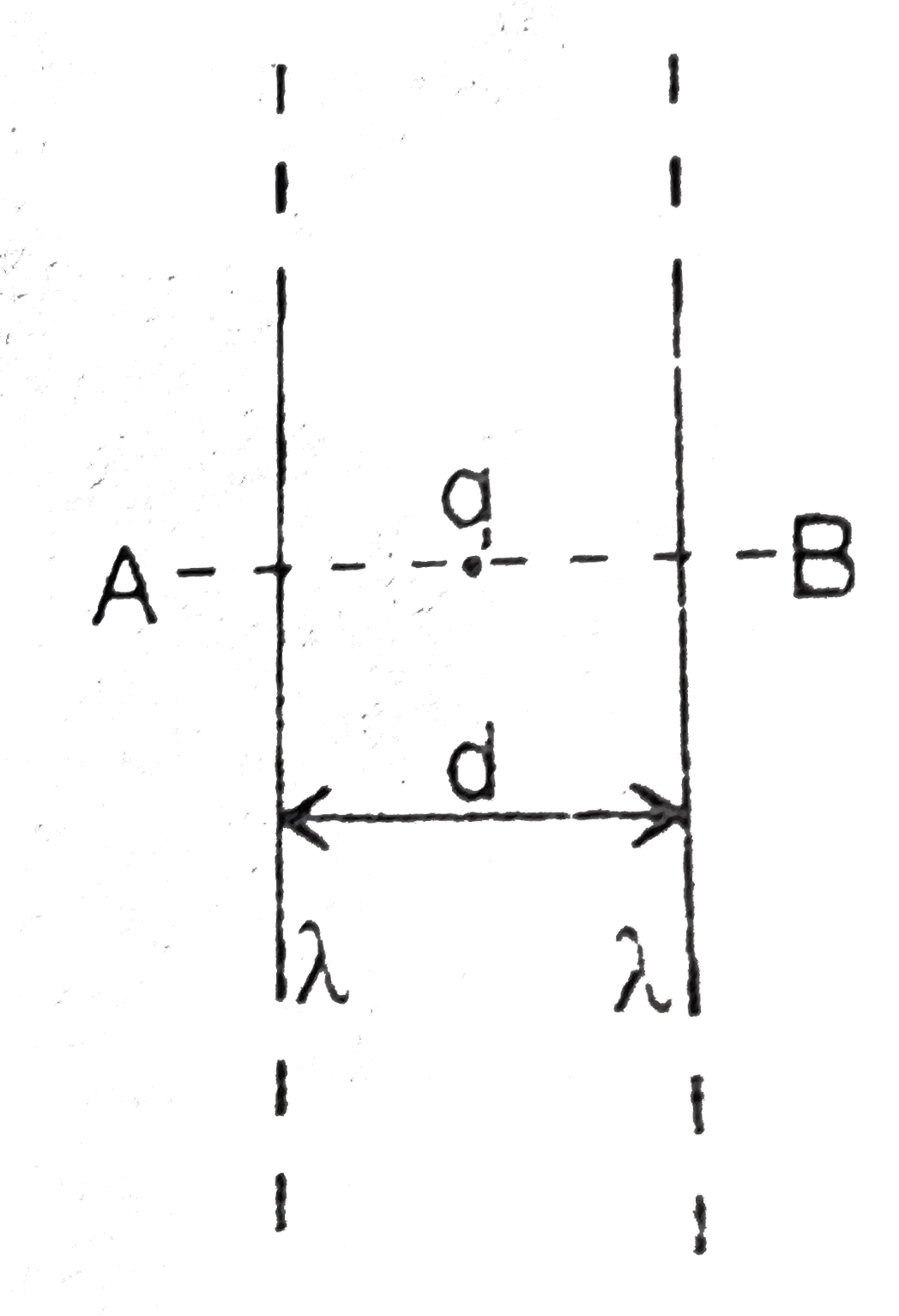There is a line charge of infinite length with positive charge distributed uniformly along ita length. One electron is moving in a circular path with the plane of the circle perpendicular to the line charge.
Kinetic energy of the electron is independent of its distance from line charge
Time taken by charged particle to complete one full circle around line charge is directly proportional to its distance from the line charge
Square of the time taken to complete one circle is proportional to the third power of its distance from the line charge.
Electric field intensity at a point due to line charge in inversely proportional to the length of perpendicular drawn from point on line charge.
The correct Answer is:A, B, D
We know that the electric field intensity due to an infinite or long line charge at a perpendicular distance x from it is given by E=λ2πε0x. When electron uses this electric field to perform circular motion around the wire , we can write the following equation :
e×λ2πε0x=mv2x⇒12mv2=eλ4πε0...(i)
In the above result we can see that the kinetic energy of the electron is independent of the distance of electron form line charge. Thus, option (a) is correct. From equation (i) we can write the following :
v=√eλ2πmε0
Time period of circular period of the electron is 2πxv and v is independent of distance. Hence, the time period is proportional to the distance of electron from the line charge or radius of its circular path . Option (b) is correct . If it is correct then option (c) cannot be correct.
In the expression of electric field intensity , E=λ2πε0x, x is perpendicular distance of point from the line charge , hence option (d) is correct.
Topper's Solved these Questions
- ELECTRIC CHARGES AND FIELDS Book:MODERN PUBLICATIONChapter:ELECTRIC CHARGES AND FIELDS Exercise:COMPETITION FILE ( Objective Question (D.MCQ) Passage )
Explore 10 Videos
- ELECTRIC CHARGES AND FIELDS Book:MODERN PUBLICATIONChapter:ELECTRIC CHARGES AND FIELDS Exercise:COMPETITION FILE ( Objective Question (Assertion Reason ) )
Explore 15 Videos
- ELECTRIC CHARGES AND FIELDS Book:MODERN PUBLICATIONChapter:ELECTRIC CHARGES AND FIELDS Exercise:COMPETITION FILE ( Objective Question (BC.MCQ))
Explore 10 Videos
- DUAL NATURE OF RADIATION AND MATTER Book:MODERN PUBLICATIONChapter:DUAL NATURE OF RADIATION AND MATTER Exercise:CHAPTER PRACTICE TEST
Explore 15 Videos
- ELECTROMAGNETIC INDUCTIONBook:MODERN PUBLICATIONChapter:ELECTROMAGNETIC INDUCTIONExercise:CHAPTER PRACTICE TEST FOR BOARD EXAMINATION
Explore 14 Videos
Similar Questions
There is one long line charge with linear charge density λ. One electron is moving in a circular path around this line charge. Plane of the circle is perpendicular to line charge and line charge passes through centre of circle. Prove that kinetic energy of electron is independent to the radius of a circle.
View SolutionA rod of length L has a total charge Q distributed uniformly along its length. It is bent in the shape of a semicircle. Find the magnitude of the electric field at the centre of curvature of the semicircle.
View Solution
Knowledge Check
When an electron moves in a circular path around a stationay nucles charge at the center
Athe acceleration of the electron changesBthe velocity of the electon changeCelectric field due to the nucleus at the electron changesDnone of theseTwo identical charges +Q are kept fixed some distance apart.A small particles P with charge q is placed midway between them . If P is given a small displacement Δ ,it will undergo simple harmonic motion if
(i) q is positive and Δ is along the line joining the charges
(ii) q is positive and Δ is perpendicular to the line joining the charges
(iii) q is negative and Δ is perpendicular to the line joining the charges
(iv) q is positive and Δ is along the line joining the chargesA(i),(ii)B(i),(iii)C(ii),(iii)D(i),(iv)
A charged particle is moving in a circular path in uniform magnetic field. Match the following.

View SolutionFind the electric flux crossing the wire frame ABCD of length l, width b, and center at a distance OP = d from an infinite line of charge with linear charge density λ. Consider that the plane of the frame is perpendicular to the line OP

View SolutionA positive charge Q is uniformly distributed along the length L of a rod. It is bent in the shape of a square. Calculate electric field intensity at the centre of the square.
View SolutionA wire of length l and charge q is bent in form of a semicircle. The charge is uniformly distributed over the length. The electric field at the centre of semicircle is
View SolutionA wire of length L carries charge Q uniformly distributed along its length. Find the electric field at a distance √3L2 from the wire at point A as shown.

View SolutionTwo infinitely long line charges having charge density λ each are parallel to each other and separated by distance d. A charge particle of mass m and charge q is placed at mid point between them. This charge displaced slightly along a line AB which is perpendicular to the line charges and in the plane of the charges. prove that the motion of the particle will be SHM for small displacement and λq>0 Neglect gravity. Find the time period.

View Solution

